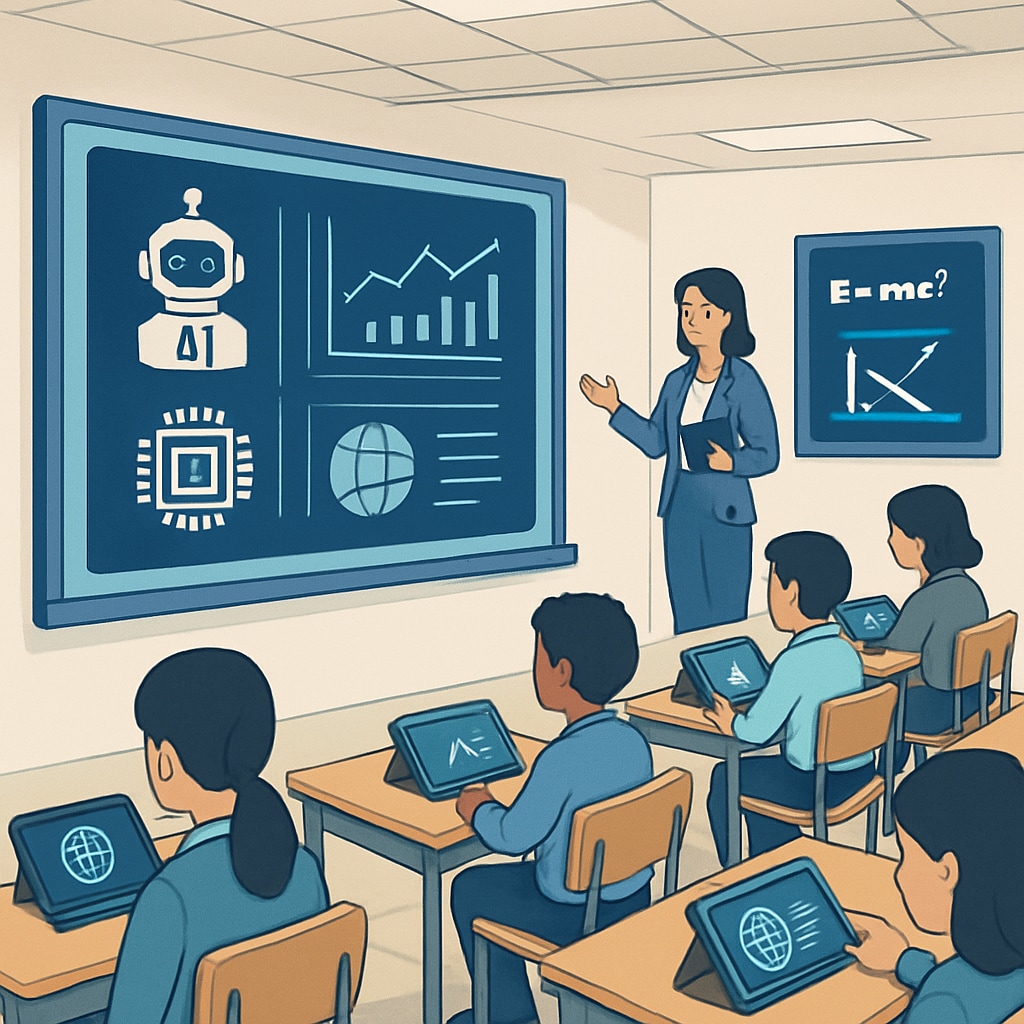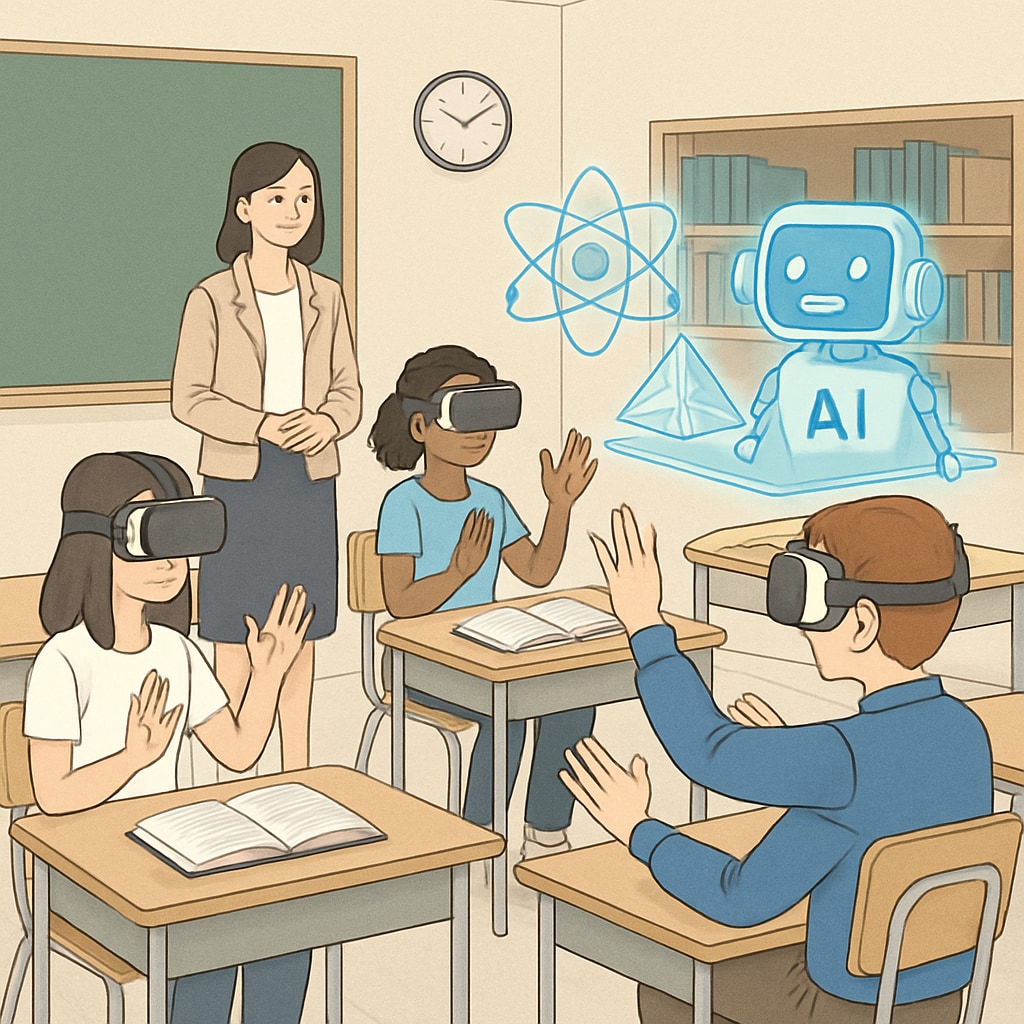Artificial intelligence (AI) is poised to have a profound impact on school education, particularly in K12 classrooms, over the next decade. From personalized learning experiences to automated grading systems, AI is redefining teaching methods, learning environments, and educational assessment. As a result, educators have a unique opportunity to embrace this technology and lead the way in transforming the education system for future generations.
How AI is Transforming Teaching Methods
AI-powered tools are already enabling teachers to tailor lessons to individual students’ learning preferences, strengths, and weaknesses. Platforms like adaptive learning software analyze student performance in real-time and suggest adjustments to the curriculum. For example, AI can identify students struggling with algebra concepts and recommend targeted exercises while advancing confident learners to more challenging material.
- Automated lesson planning tools save teachers time by generating customized lesson plans.
- Virtual teaching assistants can answer student queries, allowing educators to focus on higher-level instruction.
- AI-driven content creation enables interactive and engaging learning resources, such as gamified quizzes and simulations.

Improving the Learning Experience with AI
AI technology is transforming how students engage with their education. With intelligent tutoring systems, students can receive one-on-one support tailored to their pace and comprehension levels. Additionally, virtual reality (VR) and augmented reality (AR) tools powered by AI allow students to immerse themselves in interactive learning environments, such as exploring historical landmarks or conducting virtual science experiments.
The benefits include:
- Increased accessibility for students with disabilities through AI-powered assistive technologies.
- Enhanced collaboration between students using AI-driven communication platforms.
- Gamification of learning processes to improve motivation and retention.

Revolutionizing Educational Assessments
One of the most significant impacts of AI on education is the shift in how assessments are conducted. Traditional methods of evaluating students often fail to capture a holistic view of their progress. AI introduces dynamic assessment techniques that measure not only academic performance but also critical thinking, creativity, and emotional intelligence.
Key advancements include:
- Automated grading systems that save time and reduce human errors.
- Predictive analytics to identify at-risk students early and offer targeted interventions.
- Real-time feedback systems for continuous improvement.
As a result, assessments are becoming more personalized and meaningful, ensuring that students receive the support they need to thrive academically and personally.
Challenges and Opportunities for Educators
While AI offers numerous benefits, it also presents challenges for educators. Concerns about data privacy, ethical use of AI, and the risk of over-reliance on technology must be addressed. Educators need to adapt to new roles, becoming facilitators and mentors rather than traditional instructors.
To succeed in this transformation, schools can:
- Invest in AI training programs for teachers to build confidence and competence in using new tools.
- Collaborate with tech companies to develop ethical AI solutions tailored to educational needs.
- Promote a balanced approach that combines AI with traditional teaching methods to maintain human connection.
By embracing these opportunities, educators can lead the charge in creating a future-proof education system that benefits both students and society.
Readability guidance: This article uses short, digestible paragraphs, bullet points to summarize key ideas, and transition words to ensure smooth flow. It avoids overly complex sentences and maintains an engaging tone to enhance readability.


